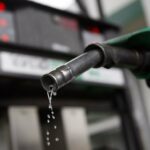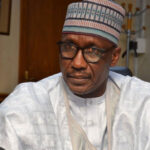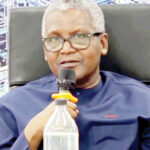It is understandable that in the case of Dangote Refinery, there will be lots of emotions involved because everything to do with oil in this country has always been sentimental, incendiary even—from the environmental crisis in the Niger Delta, the agitations that followed that, to the fuel subsidy debacle and the recurrent contestations about it. It is not only a vital sector in the nation’s economy and well-being, but it is also one that is very lucrative. So understandably, a lot is hidden, sometimes deliberately in technical jargon to confuse a casual peruser, other times in secrecy to protect vested interests.
A lot has been written, including a contribution from this column, about the Dangote Refinery. A lot has also come to light since this crisis began. None of the information that has surfaced has provided definitive answers to what exactly the truth is. Instead, it has raised more questions and provided a fascinating playing field for merchants of information disorder.
The key question every Nigerian is asking is: are vested interests acting to frustrate Dangote’s $20 billion Refinery? This question was derived directly from statements the business mogul, Aliko Dangote, himself made.
His first allegation was that oil majors were blocking his access to locally produced crude, and the second was that the regulator was allowing fuel traders to import high-sulfur diesel into the country. The implications are huge, and the reactions were as expected, sensational. This is because of the importance of the refinery to the country, the fact that none of the four state-owned refineries is working (the recommencement of operations at the Port Harcourt Refinery, due this week, has been postponed yet again), and the belief that many Nigerians have that the operationalization of Dangote Refinery would help ease the country’s energy crisis.
- Villagers accuse soldiers of killing 3 persons, 100 cows in Kaduna market
- Shippers’ council urges exporters to flood African markets with agricultural products
I suppose for many Nigerians, the shock was in seeing Dangote, one of the richest men in Africa, frustrated enough to appeal that he be bought out of the refinery as a result of the frustration he was feeling. This has effectively rubbished claims of Nigeria’s ease of doing business.
There was a rush to denounce the regulatory agency, Nigeria Midstream and Downstream Petroleum Regulatory Authority (NMDPRA), and its boss Farouk Ahmed, who had dared to suggest in very clear terms that there are concessions the agency cannot make for Dangote beyond what they had done already. This is obviously a touchy subject for Nigerians whose economy is tied to the country’s oil deposits. But it would seem concessions have already been made.
As a single-train refinery, the Dangote Refinery is required to run at a minimum of 50 per cent capacity. This means that at its full capacity of over 650kbd, making it Africa’s largest refinery, the refinery must run at a minimum of 325kbd. However, according to the NMDPRA, the refinery is currently running at 45 per cent capacity, not 50 per cent as required. Although the refinery is not fully licensed to operate, the licensing process has been designed to allow for issuance in stages.
So what exactly is happening?
Dangote’s frustration is obvious and has merit. The refinery is designed to run on Nigerian Forcados, Escravos, and Bonny Light crude, so it primarily needs to obtain its crude from Nigeria. If there are any disruptions to the crude supply, it would have negative effects on the refinery’s operation and profitability.
In my previous column on this topic, I noted that this refinery is not a charity, and Nigerians need to adjust their expectations accordingly. However, it is important to understand the key issues beyond this.
The controversy surrounding this issue has triggered several investigations. One allegation, for example, is that Dangote’s refined diesel is 80% better than the diesel being imported into the country. These tests were conducted by the refinery itself, although there have been calls for independent verification. Nigerian regulations currently allow for a sulfur content of about 50 ppm, with enforcement set to begin next year.
According to Dangote’s tests witnessed by lawmakers, the sulfur content was 87.6 ppm, while the other two samples reportedly showed sulfur levels exceeding 1800 ppm and 2000 ppm, respectively. Importers have denied these allegations. Crucially, the head of the NMDPRA has claimed that Dangote’s refined diesel has a sulfur content of between 650 and 1200ppm, contradicting the refinery’s claims. Who should we believe?
While this is a concerning development, the truth of both claims needs to be verified independently. A party involved in a dispute cannot be the complainant and arbitrator within the same dispute. However, they can present evidence that can be contested and verified. The relevant oversight committee of the National Assembly has ordered an investigation into these claims. It would be wise to withhold judgment until the outcomes of these investigations are known.
In any case, Nigerians must be protected from harmful products, whether they are locally refined or imported. Our nation’s desperation should not make us vulnerable to the exploitation of commercial interests. Regulatory agencies need to fulfill their duties diligently. The major worry for Nigeria is the institution of a monopoly in the oil and gas sector. While Dangote has been a very adept investor in the country and creator of jobs and wealth, we must not forget that this is not a handout to the nation but an aggressive business decision.
This business drive is one that, as we have seen in the past, blitzes competitors out of the way, some into oblivion, and gives Dangote strong control over product pricing. We must not replace the NNPC monopoly with a Dangote monopoly. And for this reason, the regulatory agencies must ensure that due diligence is followed.
And this is where we must query the NMPDRC. Its transparency has been economical from the onset and now, having been spotlighted by Dangote’s pleas, it must step up and be upfront with the information that is required for Nigerians to understand what is happening in that sector of the economy and what sort of concessions it has been making.
Nigeria is heavily invested in the Dangote Refinery, materially and emotionally. After all, the NNPC took a loan to invest in the Dangote Refinery. President Buhari was so eager about this refinery that he hastened to commission it a year before it was ready to start any kind of operations at any capacity. That is how eager we all are to see local businesses succeed, especially those that could change the lives of Nigerians, create employment, and hopefully help the country function better.
However, the rush of knee-jerk reactions must be curtailed and due diligence must be paid to ensure that the right is done. Both Dangote and NMPDRA must be completely transparent, and Nigerians must not be hasty to judge. The tension in this sector must be addressed with calm heads and in the end, Nigerians and their well-being must be placed ahead of any vested interest.

 Join Daily Trust WhatsApp Community For Quick Access To News and Happenings Around You.
Join Daily Trust WhatsApp Community For Quick Access To News and Happenings Around You.


